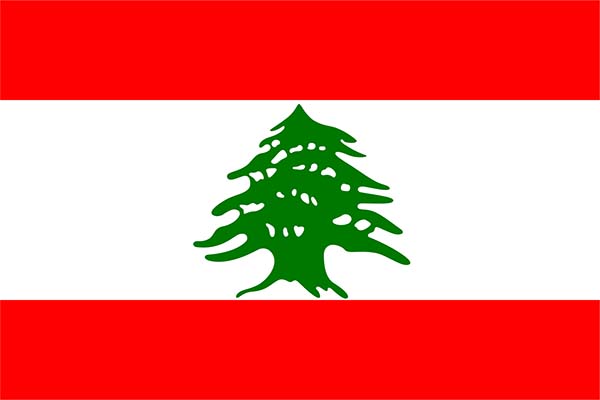The ferocious fighting in the northeastern town Arsal on the Lebanese-Syrian border has resulted in dozens of soldiers killed from the Lebanese Armed Forces (LAF), and forcing thousands of refugees fleeing towards Syrian border as refugees started believing that Syria is more secured than Lebanon. The current conflict was prompted by the Lebanese security forces arrest of Imad Jomaa, a commander for Jabhat al-Nusra who had recently pledged loyalty to the rival Islamic State. The groups ransacked police stations and army barracks and kidnapped dozens of Lebanese security personnel. The story of how Islamic State and other Sunni rebel groups fighting Syrian government begins just across border in Syria along the Qalamoun Mountains range. The mountains had become a home base for a number of Syrian Islamist rebels. Beginning around November 2013, the Syrian government and its allies in the militant Lebanese group Hezbollah launched a major offensive to root out the rebels there. The Syrian government and Hezbollah pushed the rebels back considerably. Many of those rebels mostly Sunni Islamists ended up fleeing the government advance into Lebanon. But Hezbollah didn't feel it could tolerate an ISIS presence in the area which is how things spiraled out of control.
The fighting is the most serious spillover of violence from Syria's civil war into Lebanon, compounding fears that tiny Lebanon is fast becoming a new front in its neighbor's conflict, now in its fourth year. The clashes in Arsal, a predominantly Sunni town surrounded by Shiite villages, could worsen already bubbling sectarian tensions in the country. Lebanon is a very fragile state let’s look at its demography. Lebanon's population is about 40% Christian, 27% Sunni Muslim and 27% Shia Muslim, and Lebanon itself has been split along religious lines whether to support the Alawite/Shia regime of Syria's president Bashar al-Assad or his Sunni enemies. In the past, these religious differences have split the army, whose soldiers are drawn from the entire population. The current situation has been long in the making and is driven by both the Syrian spillover and sectarian tension inside Lebanon. The radicals' arrival in Lebanon and the prospect of a mini-civil war around Arsal and perhaps as far as Tripoli could have repercussions far graver than the Gaza war on the regional dynamics. The Arsal events should be a wakeup call for the Lebanese political class to put the interest of the country ahead of each party’s narrow calculus and activate the political process internally instead of fighting someone else’s wars.
Let us recall that although Hezbollah has better arms and has had a fighting force for more than 30 years, it has failed to gain legitimacy despite its claim that it’s a resistance group and the guardian of Lebanon’s borders.Many Lebanese consider Hezbollah just as a ShiaMilitia.Whether the violent response from the Lebanese army in Arsal will help the situation or exacerbate the divisions between the Sunni, Alawite (Shia) and Christian groups in Lebanon, remains to be seen.Analysts have warned that an aggressive army response or the involvement of Shiite militant group Hezbollah in Arsal or at other Sunni areas would anger Lebanon’s Sunnis. Many of Lebanon’s Sunnis resent Hezbollah’s outsized military power, and have been angered by its role in fighting Syria’s mainly-Sunni rebels. Lebanon has been rocked by the spillover of the Syrian conflict, with its north being the epicenter of fierce clashes between supporters and opponents of the Syrian government sparking fears that Lebanon might be pulled into the Syrian civil war. A serious military assault on Sunni rebel fighting Bashar Al Assad in Lebanon would also be alarming because there are already tensions between Sunni and Shia Muslims in Lebanon as well as elsewhere in the Middle East, and an attack by Sunni extremists could inflame that strife. That’s exactly what the extremists want they want to pit Shia and Sunni against each other.
In truth no country in the region has been unable, or unwilling, to avoid the spill-over from the now sectarian-based conflict in Syria. Whilst the majority of countries in the region have been able to avoid the most destabilizing effects of blow-back from the conflict so far, Iraq and Lebanon, two of the most historically divided and fractured countries in the region, have quickly become either overwhelmed by the sectarian nature of the conflict, in the case of Iraq, Iraqi Kurdistan and the Islamic State, or on the cusp of an emergency situation, which seems to be the case in Lebanon.So the government of these two countries should tackle the situations in their home in different and cautions manner. The Lebanese government should employ a dual military and political strategy in tackling the threat. In that regard, it is incumbent on the international community to help the Lebanese Armed Forces in counterterrorism efforts and border control.But the military aspect without a political strategy is bound to fail. Strengthening Lebanon’s political defenses by voting for a president after two months of void is key to ensuring the country’s stability. The void subdued the international community’s confidence in Lebanon and its ability to meet its obligations and come together and bridge political differences. These political divisions that hinder an agreement on a president are also exacerbated by sectarian tension and a Sunni-Shiite rift that Islamic State and other radicals seem to exploit.

